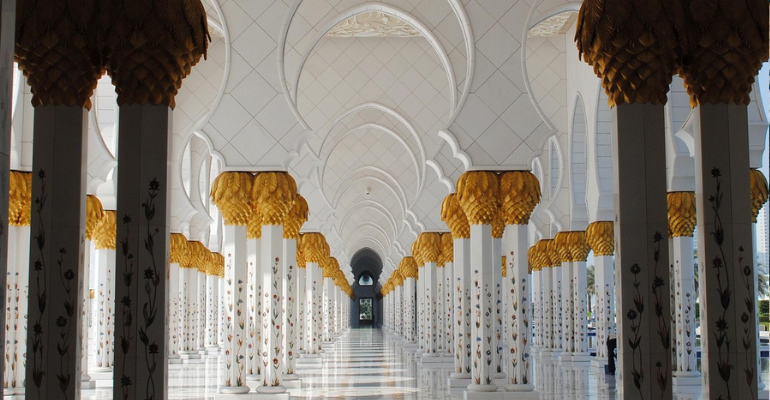In the name of Allāh, ar-Raḥmān (the most merciful), ar-Raḥīm (the bestower of mercy).
All praise is for Allāh, Lord of the worlds. May peace and salutations be upon our beloved Prophet Muḥammad, his family, companions and followers.
Praying in jamā’ah (congregation) is an obligation upon men, and for women it is mustaḥabb (encouraged).
If women are together without the presence of men, they are permitted to pray in congregation with one of them leading the others as an Imām. This applies to both silent ṣalāh, such as Ẓuhr and loud ṣalāh, such as ‘Ishā. However, with the latter, the condition is that other men must not be able to hear their recitation; otherwise, they should lower their voices.
The evidence for women praying in Jamā’ah together is what has been narrated regarding the virtuous female companion, Umm Waraqah bint Nawfal al-Anṣāriyyah, radiAllāhu ‘anhā. She had memorised the Qur’ān, and the Prophet ﷺ ordered her to lead the women of her household in the 5 daily ṣalāh. Someone [amongst them] would say the Adhān, and she would lead her household in ṣalāh.
The difference between a male Imām leading the congregation and a woman leading other women only is that a woman stands in the middle of the first row as opposed to standing in front of it as a regular imām would do.
It has been narrated about the mother of the believers, ‘Āisha, radiAllāhu ‘anhā, that she “led women in Maghrib ṣalāh, she stood in the middle of the first row, and recited aloud.”
Umm al-Ḥasan also narrated regarding the mother of the believers, Umm Salamah, radiAllāhu ‘anhā, that “she led women in ṣalāh, standing in the middle of the first row. This was in the Qiyām al-Layl in Ramadān.”
The above ruling applies to both fard (obligatory) ṣalāh as well as some nafl prayers such as tarāwῑḥ. The evidence for the latter is that it has been narrated from Ibn ‘Umar, radiAllāhu ‘anhu, that “he used to order his housemaid to lead the women in prayer during the nights of Ramadān/”
Success is from Allāh alone, and he knows best. [1]
Written by,
Abul Abbaas Naveed Ayaaz
18th Rabῑ’ al-Awwal, 1442h
Corresponding to the 4th of November, 2020.
Footnotes
[1] For a more detailed discussion on this subject, please refer to: “Aḥkām al-Imāmah wal I’timam fῑ as-Ṣalah” by Dr. ‘AbdulMuḥsin Ibn Muḥammad al-Ḥanif.


I will like to study Arabic with English translation
Walaykum salaam wa rahmatullahi wa barakatuh,
My advice would be to first try a masjid or instute near to you, as it is always better to learn Arabic in person with a teacher.
If you cannot do so, try to find a private teacher.
Alternatively there are many good online institutes which offer Arabic courses. Try MadinahCollege UK.
May Allah give you success.
Abul Abbaas